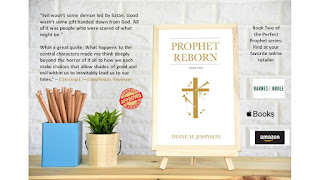And what a year it’s been so far. Less than one month in, and we’re battling devastating wildfires here in California, uncommonly freezing temperatures throughout the rest of the country, a shaky ceasefire agreement and a new political future in the United States that has a big segment of the population more than worried.
But I’m not going to get into politics. You can probably figure out where I stand on that front, and that’s all I have to say. Or if I really need to give you a hint, stop banning books and give to your local libraries.
I believe Hermann Hesse would have agreed with me. Steppenwolf takes place in Germany at a time of political turmoil, and while he doesn’t place specific focus on it, it is a time that's leading to war and fascism, and he’s not too happy about it—which may be partly why his main character Harry Haller is so depressed and planning his own suicide. And that’s the whole gist of the story. Harry Haller is depressed. He questions the meaning of his life, and life in general, and he has decided that at 50 years old, it’s time to kill himself. But then something happens—a mysterious sign over the doorway of a mysterious theater, and a mysterious woman who makes him rethink things.
This might be a good book to revisit at the Dawn of 2025… Anyway, a coworker suggested I check this book out. So, here's the extended review:
My coworker suggested I read this piece of classic literature before he finally broke down and gave it to me as a Christmas gift. Fun fact: that same Christmas, I gifted him a book too—Existentialism—A Very Short History. After reading Steppenwolf, I feel like I chose wisely.
The novel is about a man nearing fifty who ponders the meaning of life and of his own existence as an outlier/observer, and thus makes plans for his own suicide as he comes to the conclusion that people are destined to die anyway, and there is no joy to be had once you realize it. Then he comes upon a man with a sign, and a closed door to a theater that's "for madmen only." He meets an intriguing woman, Hermine—who reminds our protagonist Harry of a long ago friend named Herman, and she lures Harry into a quest to find all the possibilities of life, death, happiness and longing by living a more decadent and carefree life beyond the bourgeois lifestyle he leads and at the same time despises.
The bulk of the story is Harry resisting this path, until he doesn’t, then learning the lessons of possibilities once he gives himself over to the whims of chaos and unpredictability. Written in 1929 and set in Germany, the story suffers from some of the prejudices of its time, but I found it admirable to see it touch on current topics just the same. For instance, Herman partly falls in love with Hermine because of her resemblance to his boyhood friend Herman. And at one point, Hermine dresses like a man for the purpose of being mistaken for a Herman. So that touch of playing with gender norms is a great example of its existence—without condemnation—a hundred years ago.
If existentialism is a subject that intrigues you, then Hesse's Steppenwolf is a must for your literary shelves. It's a classic that should be available anywhere you look—even your local library.



